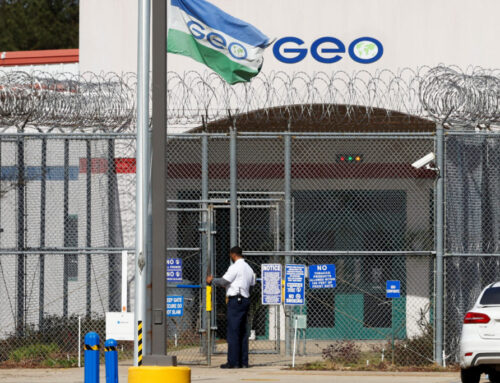Support for large-scale solar developments in rural Washtenaw? Here’s what MLive readers s
April 16, 2025
WASHTENAW COUNTY, MI — As a renewable energy firm plans utility-scale solar projects in two rural Washtenaw County communities, dozens of property owners are interested in leasing their land.
Chicago-based Invenergy is pursuing plans to develop facilities in Saline and Bridgewater townships in southern Washtenaw County. Officials in both communities are considering amending local zoning regulations to potentially exert more local control over large-scale solar projects.
RELATED: Renewable energy firm pushes for solar projects in rural townships near Ann Arbor
New state laws went into effect in November that took away the final authority to approve or deny large-scale solar, wind and some other power projects from townships and local governments, in certain cases. If local municipalities do not have ordinances regulating large-scale solar projects, institute overly restrictive rules or deny projects, developers have an option to go to the Michigan Public Service Commission.
In response to Invenergy’s interest in rural Washtenaw County, MLive/The Ann Arbor News asked readers to share their thoughts.
RELATED: Tell us: Do you support large-scale solar developments in rural Washtenaw County?
As of Wednesday, 35 people have responded. Twenty-three readers said “yes” when asked if they support large-scale solar developments in rural areas of the county. Six said “no” and six answered “other.”
In addition, 24 readers said they support recently enacted state rules that ease barriers for renewable energy developers. Seven readers said they do not support the new state rules, and four answered “other.”
Supporters like Dan Ezekiel, 69, of Ann Arbor, argue there is need for green energy.
“We need a huge increase in green renewable energy, to mitigate climate change caused by burning fossil fuels,” Ezekiel said.
“Local municipalities aren’t allowed to veto other energy infrastructure, like transmission lines or pipelines, so they shouldn’t be able to thwart solar or wind farms,” he said.
Ann Arbor resident Ronald Emaus, who identified himself as a global change researcher and activist, thinks, “except for nuclear war, there is nothing more important than eliminating our use of oil,” he said.
“Landowners should be able to factor in alternative uses for their land to make their farming viable,” Emaus said. “This (NIMBY)ism against solar energy will subject future neighbors to environmental catastrophe. Cherries, peaches, apples, maple syrup can hardly be grown anymore because of climate warming and extreme weather.”
NIMBY is an abbreviation for “not in my backyard.”
Richard Northrup, 63, of Dexter is among those who do not support large-scale solar developments.
“They poison the land and generate expensive, unreliable power,” Northrup said. “They need grid backup with coal/gas/nuclear so we might as well build those — which generate cheaper more reliable power — anyway.”
“‘Renewables’ generally take more energy than they can make are net negatives in this way. They poison the land. They dramatically increase the price of power and are unreliable,” he said.
“I’ve seen other areas with these,” Rod, 52, of Ann Arbor, said. “They ruin the rural landscape and negatively impact wildlife.”
A reader named John thinks locally generated electricity “is a more reliable source of energy as the price of fuel is zero and the supply chain is contained within the county.”
“Also, good paying jobs are created in rural areas of the county,” John added. “Local authorities often lack in-depth knowledge and experience with renewable energy generation and are often fed false or misleading information by people who directly or indirectly get funded by the fossil fuel industry.”
Ryan, 37, of Saline, thinks solar energy is “necessary to reduce greenhouse gas emissions and our reliability on oil and natural gas for energy.”
New state rules allow projects “to move forward faster and with lower costs,” he said.
John Ripple, of Saline, said he has solar and “it works,” he said. He also noted it can bring “increased tax revenue for townships.”
“Climate change is a beast,” Ken Westerman, of Ann Arbor, said. “Eminent domain is a reasonable response to climate change.”
“We need to move away from dependence on fossil fuel for energy production,” Susan McKee, 72, of Chelsea, said.
But McKee has “mixed feelings” about new state rules.
“I am in favor of renewable energy and don’t think municipalities should block them, but I am also a believer in local control in most cases,” she said.
A reader from Milan believes solar energy is inefficient in Michigan and that residents should have a say in these projects.
“Michigan is a terrible place for solar energy,” Margaret, 57, of Ann Arbor, said. “The payoff in energy production vs. the toxicity of the panels and the sterilization of the underlying land is a bad ratio for anyone other than Invenergy.”
“The people who have a vested interest in their communities should have the final say in what happens in their communities,” she said.
Crystal, 40, of Ypsilanti, does not support using open land, like farms, forests and natural areas for solar installations, she said.
“I would prefer solar developers leverage brownfields, the spaces in highway interchanges, previously developed commercial spaces for solar installs,” she said. “We need to consider the long-term impacts these installs have on the ground beneath them and stop ravaging the natural landscape unless absolutely necessary.”
Editor’s note: MLive will conduct surveys on interesting issues in Michigan. Artificial intelligence was used to assist in the sorting of reader responses.
Want more Ann Arbor-area news? Bookmark the local Ann Arbor news page or sign up for the free “3@3 Ann Arbor” daily newsletter.
Search
RECENT PRESS RELEASES
Related Post



